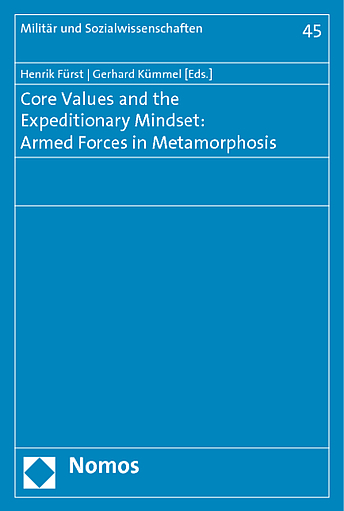englischThere is quite some consensus that today’s international security environment has substantially changed following the end of the Cold War in 1989/90 and that this requires the transformation of modern armed forces from conventional ones to something else. This ‘something else’ may indeed be an expeditionary military. The military metamorphosis that is needed seems to be nothing less than a substantial overhaul of the armed forces in various dimensions. One obvious dimension is organizational structure. The second dimension is technology and especially armament technology where weapons and equipment need to be adapted to present-day conflict and combat challenges including a shift in focus of procurement policies. The third dimension rests with the assumption that the given, current security political landscape necessitates a change not only in the military’s organizational format and technological posture, but also in mindset. Changing the conventional military mindset towards one that is focused on expeditionary operations calls into question how such a transformation will influence the core values of the military. The fourth and final dimension is educating and training the soldiers because expeditionary operations call for additional skills and expertise compared to those required for a Cold War military mission.
The contributions to this book focus on the mindset and the core values of an expeditionary military and take different avenues to approach these themes. At times, they also reach out into the other dimensions. The book is divided into two parts. The first part covers concepts and conceptual approaches, while the second part contains contributions that basically carry case-study character. The contributors belong to a wide range of academic disciplines, which allows for different avenues and perspectives on our topic, thus enriching our knowledge of the problems involved. The book is of great interest and relevance to academia, military practitioners and political decision-makers.
Contributors:
Eyal Ben-Ari; Caroll Connelley; Harry Ford; Henrik Fürst; Torunn Laugen Haaland; Asa Kasher; Kai Michael Kenkel; Paul Klein; Gerhard Kümmel; Juha Mäkinen; Patricia M. Shields; Henning Sørensen; Paolo Tripodi; Ong Weichong; Donna Winslow
Das internationale Sicherheitsumfeld hat im Wesentlichen nach dem Ende des Kalten Krieges einen substantiellen Wandel erfahren, welcher eine Transformation moderner Streitkräfte von „herkömmlichen Truppen“ in Auslandseinsatztruppen erfordert. Diese militärische Metamorphose erfordert eine grundlegende Änderung der Streitkräfte in verschiedenen Dimensionen, insbesondere in Organisation, Technologie, Denkweise sowie Ausbildung und Training.


